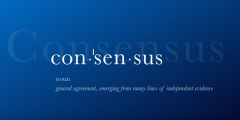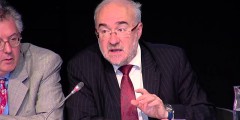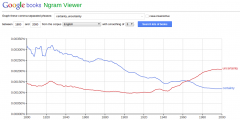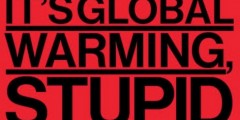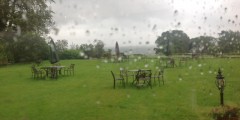Searching for Zika: Where are the women?
October 21, 2016
Newsflash: Article based on more qualitative analysis now out!! Media coverage of the Zika crisis in Brazil: The construction of a ‘war’ frame that masked social and gender inequalities (open access) *** The Zika virus has attracted a lot of attention over the last year. For some people it’s a faraway threat, for some it’s a …
Climate, science and politics: The certainty and consensus confusion
April 24, 2016
In this, my probably final, blog post on climate change, I’ll return to a topic that has troubled me for many years, namely religious rhetoric used in debates about climate change science and climate change politics. The terrain between climate change science and climate change politics has become a bit of a swamp and the …
Improving climate change communications: moving beyond scientific certainty
June 8, 2015
This is a co-authored post with Gregory Hollin. It is based upon our new paper in Nature Climate Change, which is the first piece of original research from science and technology studies (STS) published in the journal. In the last 25 years scientists have become increasingly certain that humans are responsible for changes to the …
Certainty
January 6, 2014
There has recently been some discussion in climate change circles about climate sensitivity and predictions of warming trends about which I will not talk, as I have no expertise in those fields. However, as I am nevertheless trying to keep up-to-date, I recently read a reblogged blog post about just such issues on And then …
Just one number: has the IPCC changed its supply of evidence?
September 27, 2013
As I have researched online climate scepticism over the last year, its become clear that climate sensitivity has been one of the biggest topics for discussion. This is perhaps one of the easier parts of climate science to understand. Put simply, sensitivity measures the amount by which the Earth’s temperature increases when atmospheric carbon dioxide …
Short circuiting the language of Sandy – how to balance literalism and lucidity?
November 14, 2012
My previous post here at MSP reflected on comments in the BBC’s Climategate Revisited programme, suggesting that uncertainties in climate science have come to the fore in the years following the publication of scientists’ emails. By being more open about such uncertainties, there may be a hope that some of the public trust lost after …
Echoes of Climategate: focusing on uncertainty?
November 13, 2012
The ever-lively climate blogosphere was given an extra jolt recently by a new BBC Radio 4 documentary – Climategate Revisited. The programme assessed the fallout from the infamous publication of emails from the University of East Anglia (UEA) server, rather than attempting to adjudicate on scientific claims or the contents of the emails. The programme …
The impact of earthquakes on making science public
October 25, 2012
Many articles have been written about the case of three seismologists, two engineers, a volcanologist and a public official who have been sentenced to be jailed for six years on 22 October in L’Aquila, Italy (although this sentence may be reduced on appeal). These members of the National Commission for the Forecast and Prevention of …
‘Silent spring’ – making science public
September 27, 2012
In terms of making science (and products of science) public, the book Silent Spring (1962) by Rachel Carson, published 50 years ago today, occupies a unique place. It was one of the first popular science books that shaped public perception of the world we live in and it also had direct political consequences. Carson’s book …
Not God but Goldilocks? The Higgs Boson and science communication
July 7, 2012
Being on a rain-washed holiday in the depth of Dorset, what else is there to do but watch some news, read some newspapers and getting a long lecture on the Higg’s from one’s offspring. I still don’t understand exactly what’s going on with the Higgs, but the whole thing ties in nicely with various topics …


